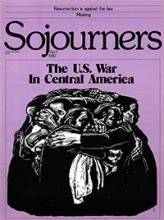All day long we were fleeing. We ran seeking the ravines. We brought all of the injured from the other villages; there were many. The largest number were women and little children. We hid in the mountains, but the women wore clothes of many colors, and from the helicopters they could see us very well.
We saw the helicopters begin to fly in circles, surrounding us all. They began to machine-gun the people. The only way of saving ourselves was to run to the ravine and throw ourselves into it, which was quite steep.
We began to run and run to the mountain, falling and falling. The small children ran alone. They were being left behind, getting lost among so many people; and all shouted, "Mama, Mama..." And then the women upon seeing them behind returned to get them. Many of them on returning fell from the bullets. We couldn't return to assist them because the army came to 10 meters from those at the end of the multitude.
On arriving at the ravine, a woman behind me fell. She carried a child on her back and another in her arms, which fell to the ground in a long fall. She was all covered with blood and her hand dislocated. She shouted to me, "Help me, help me with my child. Look, I can't carry it, I can't endure it!"
I took the child without looking at it, because I only grabbed it and ran at the side of the woman. In a moment I heard the child shout, then I saw its head. It was split, almost open.
We fell, tumbled, rose up, and returned to running. Without giving it a thought, we had walked and run for six hours.
We stopped and cleaned the wounds of the women and children. We could hardly do anything, because we had arms and legs completely dislocated or broken. We had no sedatives, nothing to cure or bandage with.
Read the Full Article

